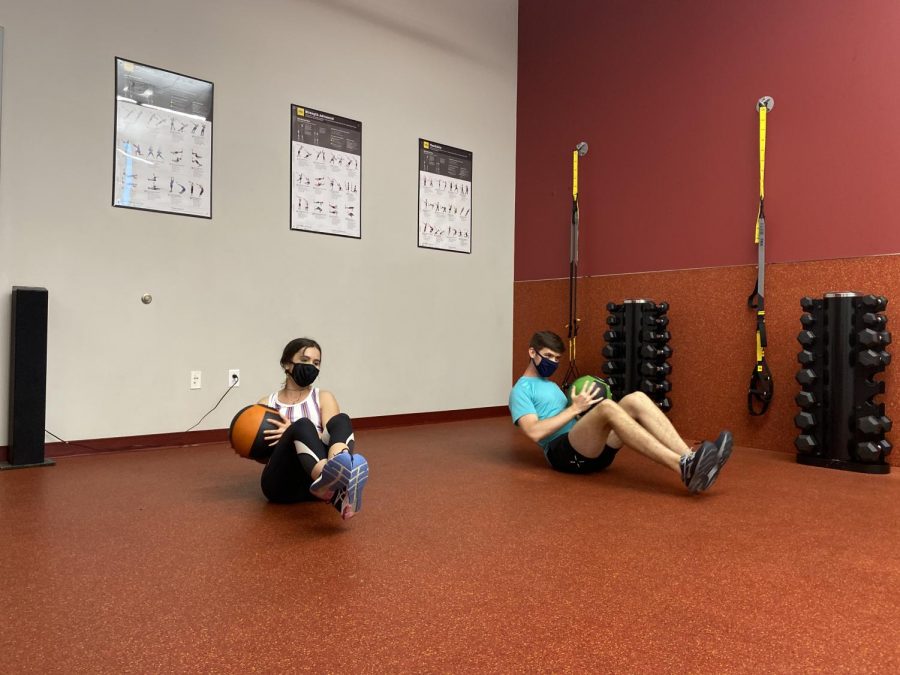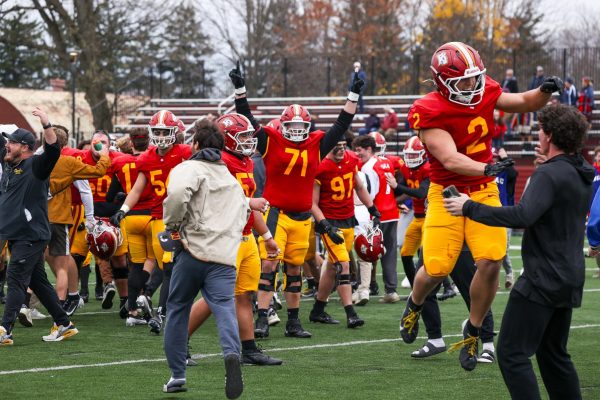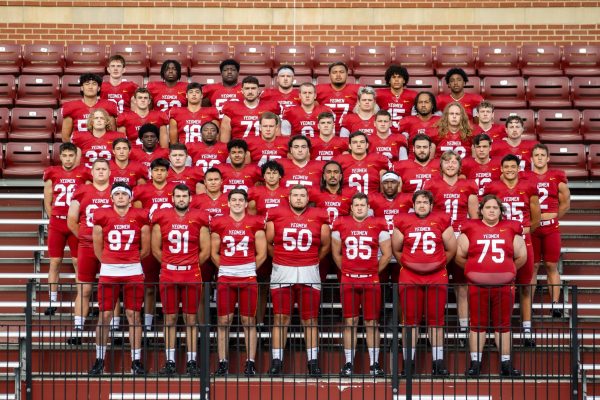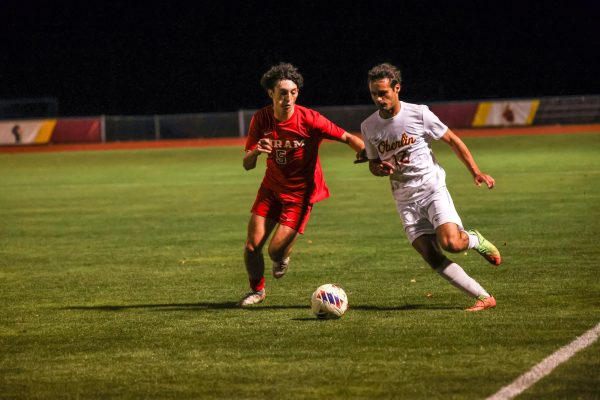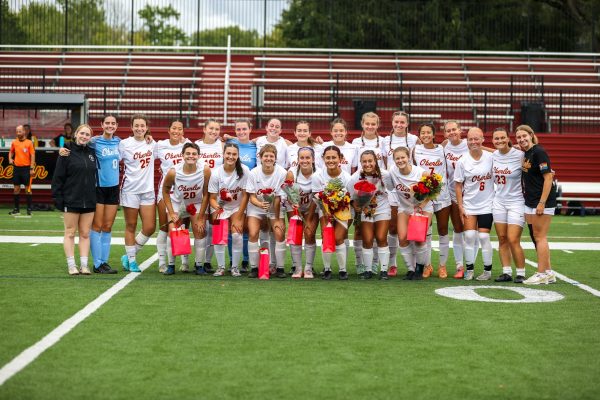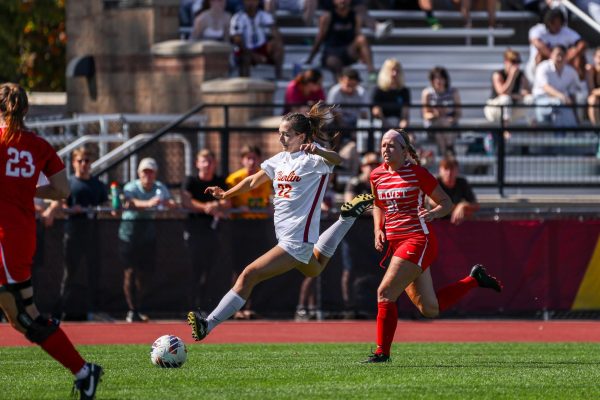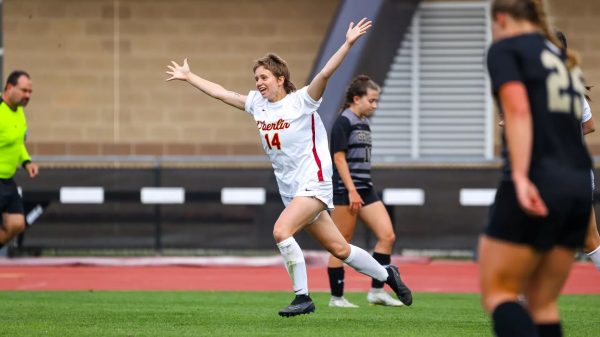Students Adjust to Changes at Philips Gym
College students are required to wear masks while working out in Philips gym.
To operate during the COVID-19 pandemic, Philips, like most gyms, has instituted significant changes. Individuals and teams alike have had to adjust their habits to meet the new restrictions.
Philips opened on Aug. 17, debuting the precautions taken by the College. The gym has canceled its community membership program, which means access is restricted to Oberlin College students and personnel. Other notable changes include — but are not limited to — reduced hours of operation, lowered maximum capacity in all rooms, and the removal of certain equipment to help enforce physical distancing.
For the most part, the student body has embraced the adjustments. College second-year and football player Mason LeVasseur frequents the gym and is pleased with the changes that have been made.
“I think the changes are 100 percent called-for,” LeVasseur said. “The entrance process is very strict, and monitors and supervisors ensure that all protocols, including cleaning and screening, are followed.”
One of the largest changes to Philips is the new entrance process. Visitors must enter through a single entrance, where they will fill out a brief symptom survey and have their temperature checked. They can be denied access to the building if they do not meet the entrance requirements.
While this process may seem strict, College fourth-year and member of the women’s soccer team Kiera Markham believes there was room for even further restrictions.
“I think that, much like any restaurant, college, or general public space opening up again, there are definitely some kinks that need to be reworked in terms of the gym reopening,” Markham said. “I think taking gym-goers’ temperature and reducing occupancy is a great starting point, but the questionnaire people are required to fill out doesn’t hold much weight.”
The changes to the gym are subject to change as the College continues to monitor the pandemic on a global, national, and local level. As for now, the precautions appear to be keeping positive cases at a manageable level, although they have had some unexpected consequences.
“I have experienced long lines and wait times,” College fourth-year, softball player, and weight room attendant Gianna Volonte said. “I work the morning weight room shift, which is typically pretty empty. The rooms have never reached the capacity limit [during that time]. The afternoons, though, are a different story. I have seen lines the entire length of the hallway. The cardio room, in my experience, has always been available.”
The long wait times are a result of the reduced maximum occupancy limits and restricted general-use weight room hours. This has inconvenienced many students, whose schedules make it hard to attend the gym’s new hours.
“I have found that I am not going to Philips as often because of the limited hours,” Volonte said. “I would go in the mornings, but I work that shift, and I have class during the afternoon hours. I have found myself doing a lot more cardio [and] endurance work than strength and weight lifting just because of what is available at the gym during my free time.”
LeVasseur has adjusted his habits due to the new restrictions.
“I personally have no experience with lines, partially because I am there as soon as they open,” LeVasseur said. “I go to Philips just as frequently [as before], I just have to alter my times depending on the day.”
While the gym can be difficult to navigate as an individual, some teams, like football, have had an easier time adapting.
“The only changes come in the times and duration of our lifts,” LeVasseur said. “With shorter times to lift, we definitely go more fast-paced.”
While individuals and teams have had to change their workout habits, many students are grateful for the College’s attempts to provide a clean and safe athletic environment.
“In any case, a public space is only as safe as the individuals occupying it — no matter how many rules or regulations there are — so I think that gym-goers must realize the responsibility they have in keeping the gym operational and clean,” Markham said. “I’m really thankful for all of the individuals who are constantly cleaning and monitoring the gym to make it a safe and clean space that we’re still able to use for the time being.”


